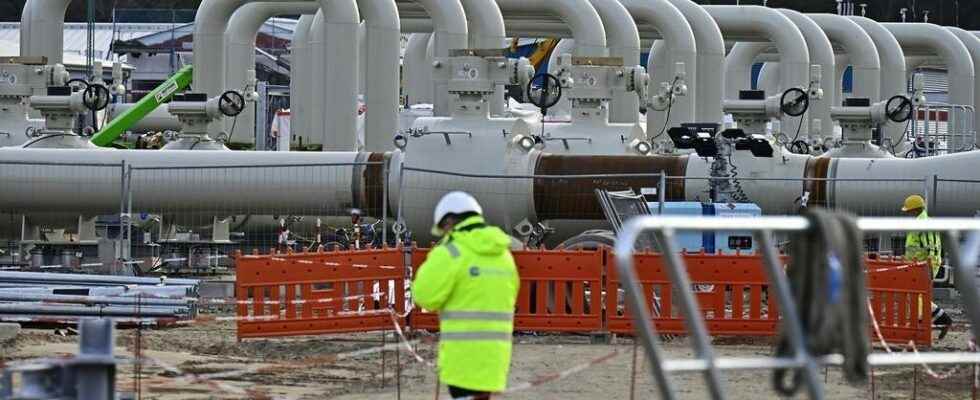This is another war that is being played out alongside the war in Ukraine: an economic war on the oil and gas markets. Yesterday, Joe Biden unsheathed an embargo on Russian oil and gas imports to the United States. Simultaneously, relieves Release“ Europe announced a plan to reduce its dependence on Russian gas by two thirds before the end of 2022, an ambition unthinkable a month ago. “We must become independent of Russian oil, coal and gas. We simply cannot rely on a supplier who explicitly threatens us,” said Commission President Ursula von der Leyen. War is declared, exclaims Liberation, or at least the only war Europe can wage against Vladimir Putin without sending troops to the Ukrainian front. »
Switch providers
The world wonders: ” how can Europe reduce its ultra-dependence on gas from Russia? how to do without about 45% of the gas imported in 2021 at EU level? These percentages vary from country to country, France being well below (17% of its gas imports in 2020), and Germany well above (more than 50%). But the EU’s problem remains with Russia, which also supplies it with oil and coal. »
One of the solutions: turn to other countries…” The EU could replace 30 billion Russian m3 with those from other suppliers. Through gas pipelines (10 billion m3), for example from Norway or Azerbaijan. As well as by sea (20 billion m3), the United States and Qatar having made the trade of liquefied natural gas a specialty. »
Another solution, point again The world : “ deploy renewable energy. “Wind, solar, biomass, hydraulic. Within a year, if Europe manages to generate 35 terawatt hours more than its plans, it could do without 6 billion m3 of gas, according to the IEA, the International Energy Agency. (…) Producing more electricity from biomass and from nuclear power would also save 13 billion m3 of gas. »
Reduce our consumption
Corn, “ it’s up to us to act too, exclaim The echoes. ” Rather than repeating “but what is the government doing”, each of us can reduce our energy consumption. (…) A quarter of French homes are heated with gas, and a reduction in the temperature of a dwelling by one degree lowers the quantity of gas burned by 7% (while the average temperature in dwellings has increased much more these last decades). (…) We can make many other choices, pursue Les Echos, for example, often give up the car for short distances. With digital tools, we can also coordinate these efforts on a very large scale. It is up to us to want to act. To invent each our sobriety. »
Last hope before the military confrontation
In any case, ” war no longer enters the daily life of the French only through images but also through their wallets », raises Free Charente. ” It may seem misplaced to compare shattered human lives to gas prices soaring hour by hour. Except that even in a free and peaceful country, filling up at more than two euros a liter has dramatic consequences on the daily lives of millions of individuals and thousands of businesses. And on the acceptance of the conflict, while the liter of gasoline at three euros (!) is already mentioned. »
However, continues Lin Charente Libre“ if this unbridled and total economic war is launched by the West to make Putin bend, it is for one reason only: it is the last stage, not to say the last hope, before the military confrontation. The latest weapon of mass destruction that only takes away purchasing power before other weapons take away lives and not just in Ukraine. »
The price of freedom
The Midi Dispatch insists: Doing without Russian gas remains the only possible way, the only really effective means of pressure. This will be very expensive for Europe, which will undoubtedly have to put in place a “whatever the cost” for individuals and businesses. But at a time when Ukrainians are sometimes fighting to the death to defend the democratic values that we share, this is the price of freedom. »
